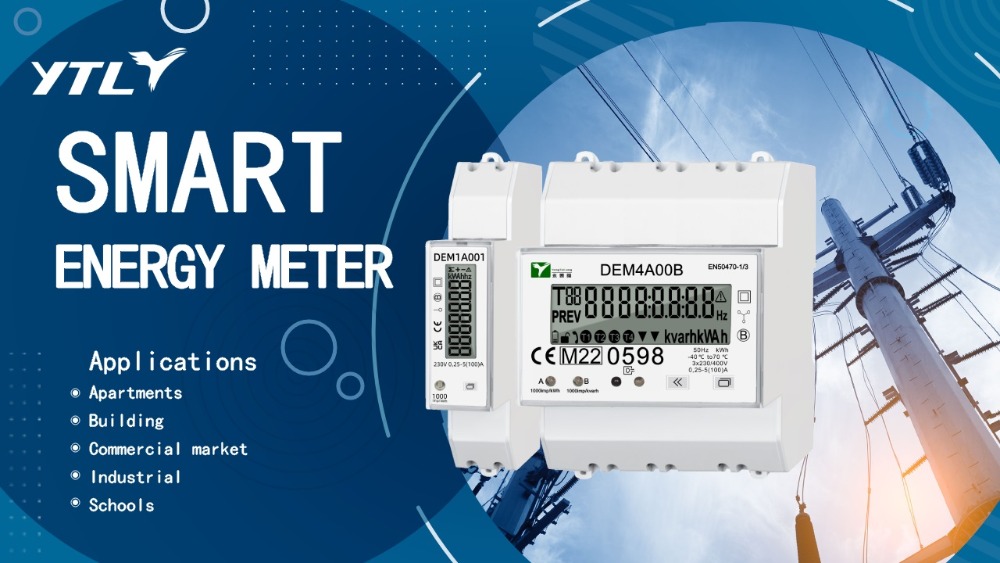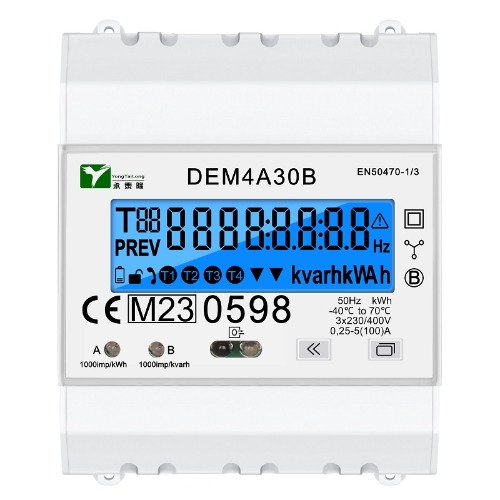
Understanding the Different Energy Meter Types and Their Applications
Energy meter types are used to measure and monitor electric power consumption at a building or facility. Energy Meter Types: mechanical, electronic, pulse count and digital.
The first type is the mechanical meter.
This Energy Meter Types are used to measure electric power consumption and is found in homes, small businesses and other non-commercial settings. Mechanical meters are also known as analog meters because they can be read manually by turning a dial on the front face of the device. The amount of electricity consumed will be visible on this dial as it turns with each kilowatt hour (kWh) that passes through your system:
The second is the electronic meter.
Energy Meter Types are more accurate, durable and expensive than mechanical meters. It can be used for a wider range of applications as well. Electronic meters measure electricity in units called kilowatts (kW), where one kW equals one thousand watts or 1/746 horsepower.
The third is the pulse count meter.
A pulse count meter (PCM) is an electromechanical meter that uses a magnetic pickup to measure the current. The PCM has been around for decades and can be found in many homes across the world. It's not as accurate as other Energy Meter Types, but it's cheap and easy to install.
The fourth Energy Meter Types are called an ampere-hour meter or watt-hour meter. This is another electromechanical device which measures both electrical current and power consumption over time periods ranging from minutes up through years at once.
The fourth is the digital energy meter.
Digital energy meters are used for both single and three-phase systems and offer more accuracy than their predecessors. They're also more reliable, as they don't require mechanical parts to operate.


Digital meters use pulse counting technology, which means that they can count pulses from electricity without having to convert them into alternating current (AC), like analog meters do. This allows them to provide more accurate readings because they have no moving parts that could break down over time or get stuck in one position if something goes wrong with your electrical system (like when there's an outage).
Energy Meter Types are used to measure and monitor electric power consumption at a building or facility.
They can be mechanical, electronic, pulse count, or digital. Electronic and digital meters are more accurate than mechanical or pulse count meters because they record the exact amount of energy your home uses over time so you can see which appliances are costing you the most money.
If you're looking for ways to save money on your electricity bill, consider getting an energy audit from your utility company. This service is free, but they may ask that their employees come into your home and look around before giving advice on how best to cut back on usage without sacrificing comfort or convenience (for example: setting up timers on lights).
We hope that this article has helped you understand the different Energy Meter Types and their applications.

YTL is a professional supplier of energy meter and AMI solution. the Top 100-enterprise with most investment value in Zhejiang. And“Yongtailong”is the famous brand of Zhejiang. With nearly 20 years' experience in energy metering, we devote ourselves to providing competitive projects and creating value for customers.
● Online + Offline. Provide cost-effectiv solutions
● Strict quality control mechanism.High quality assurance
● Five R&D centers,combine with hardware&software design, experiment and testing
● Global service capability, provide customers timely and effective solution
● Good customer feedback. Reliable after-sales service
● Online + Offline. Provide cost-effectiv solutions
● Strict quality control mechanism.High quality assurance
● Five R&D centers,combine with hardware&software design, experiment and testing
● Global service capability, provide customers timely and effective solution
● Good customer feedback. Reliable after-sales service

 English
English 简体中文
简体中文







.jpg?imageView2/2/w/500/h/500/format/png/q/100)

.png?imageView2/2/w/500/h/500/format/png/q/100)




